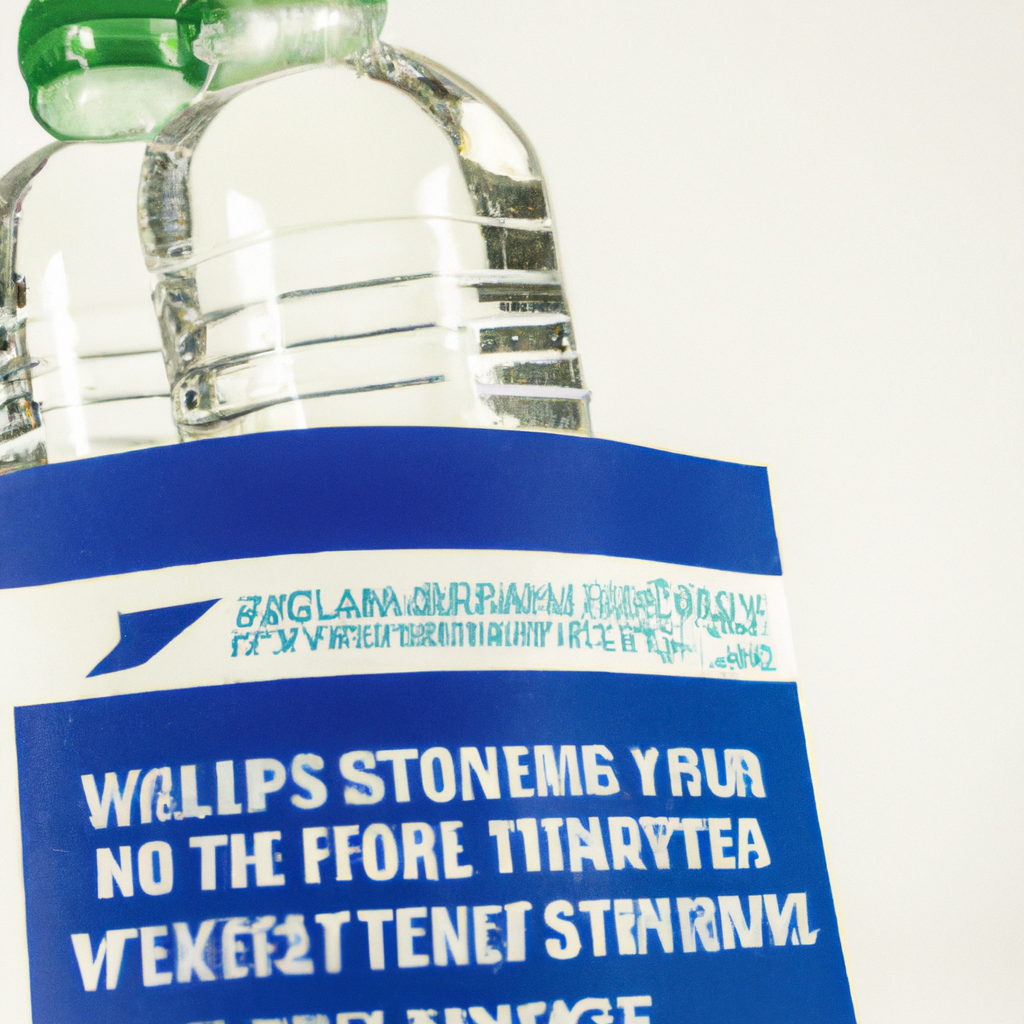Are you an athlete looking to maximize your performance and get the most out of your body? Protein is one of the most important sources of energy and nutrition for any athlete, and getting the right amount, from the right sources, at the right time is key for success. In this article, we’ll cover the basics of protein FOR athletes: sources, amounts, and timing.
1. The Powerhouse of Protein: Fueling Athletes for Peak Performance
Protein is essential for building muscle strength and endurance, so it’s no surprise that athletes around the world turn to protein as their go-to nutrition source. Protein provides energy to stay active for longer periods of time, making it a powerhouse for peak performance.
Athletes looking for the edge to reach their highest potential should consider the following potential benefits of adding more protein to their diet:
- Improved Muscle Mass and Strength: As an athlete, you want to be strong, so adding protein into your diet can help build muscle, improve strength and train your body for peak performance.
- Improved Endurance and Recovery: Muscles need protein to build strength and endurance, which can help you stay energized for longer periods of time while recovering more quickly from exercise.
- Reduced Risk of Injury: When the body is properly fueled from the right sources (like protein), the likelihood of injuries is reduced, allowing for greater focus on training and peak performance.
Protein can be found in a variety of different foods such as meat, eggs, nuts, yogurt, grains, beans and dairy. Everyone’s diet is different, so it’s important to pay attention to what foods meet your specific nutrition needs. A balanced diet rich in protein is the foundation of any athlete’s diet.
Adding protein to your diet can also help keep you full longer, which is essential for athletes who need extended energy for training and workouts. Being satiated helps with the mental clarity, making it easier to focus on your goals and stay motivated.
Athletes of all levels trust protein as their go-to fuel for peak performance. Taking advantage of the powerhouse of protein can help you reach the next level and exceed your expectations.
2. Unleashing the Athlete’s Potential: Optimal Sources and Amounts of Protein
Getting the right amount of essential macronutrients, like protein, is key to unlocking an athletes true potential. Protein plays a vital role in athletes’ training and performance, yet can sometimes be an overlooked macronutrient. To fuel an athletes’ body, an optimal intake of protein must be achieved.
Protein is the building block of muscle: When the body has enough protein available, it’s able to repair, build and maintain muscle. Muscles are the engine’s behind nearly all athletic activities, making sufficient amounts of protein absolutely essential.
Amount: To increase performance and reach peak athletic form, athletes should aim for a daily intake of approximately 0.8 to 2.0 g of protein per kg of body weight. With intense exercise, it can be beneficial to have a protein intake on the higher end of the scale.
Sources: Foods are the best way to meet protein needs, and there are a wide variety of options. Animal proteins such as eggs, dairy, and lean beef, are excellent sources. Plant-based proteins like beans, chickpeas and lentils are also available, but should be consumed in combination with other proteins as they are deficient in certain amino acids.
Supplements such as whey protein, pea protein, or a protein powder blend, are also great sources of extra protein and can help an athlete reach their goals when appropriate.
Conclusion: Protein is a necessary macronutrient for athletes to perform at their peak. Protein provides the body with the tools it needs to repair and build muscle quickly and effectively. A daily intake of 0.8 to 2.0 g of protein per kg of body weight is needed to reach the full potential of an athletes form. Animal sources, plant-based sources, and protein supplements, are all great options to consume to meet daily requirements.
3. Perfecting the Protein Puzzle: Timing Strategies for Athletes
Good nutrition is essential for athletes to perform their best in any sport. However, understanding how to perfectly time their protein intake can be tricky. Proper protein intake ensures athletes can meet their goals safely and efficiently without increasing their risk for injuries.
Work Out Intensity: The intensity of your workout plays a huge role in determining how much protein you should consume. For example, if you’re participating in highly intense activities like HIIT or weightlifting, your body needs more protein than those who just enjoy leisurely walks or yoga. Also, athletes continuing their workouts for longer than 90 minutes should increase their nutrient intake during their training.
Timing: Timing your protein intake plays an important role in ensuring the fuel is used most effectively. Consume protein before and after workouts. Before exercising, aim for 20-25 grams of complete protein for the best outcome. During your workout, the amount you consume depends on the length and intensity of the session. Immediately after the workout, take in another 20-25 grams to help repair and rebuild your muscles. Additionally, to prevent muscle protein breakdown, eat at least 20 grams of protein every 3-4 hours.
Strategies for Athletes: Here are a few strategies that can help athletes figure out the ideal timing of their protein intake.
- Start the day with protein. Many athletes opt for a lean protein source like eggs, yogurt or soy milk with oatmeal or whole grain toast to get the day started.
- Snack intelligently. Eating healthy snacks with protein is a great way to keep your energy levels up throughout the day. Some good protein snacks include nuts, seeds, nut butters, hard-boiled eggs, and protein shakes.
- Think beyond protein powder. Protein shakes are a great source of fast-acting proteins, but many athletes don’t realize there are other options available too. Consider yogurt, eggs, grass-fed beef, wild-caught salmon, quinoa, and beans as well.
By adhering to the strategies outlined in this section, athletes can ensure they’re getting the most out of their protein intake. As long as optimal timing and the right type of protein are considered, athletes can use protein to consistently reach their goals safely and efficiently.
4. A Closer Look at Protein for Athletes: Balancing Quantity, Quality, and Timing
For athletes, getting the right amount of protein is critical. If you consume too much, you can increase the risk of weight gain and inflammation. On the other hand, if you don’t consume enough, you can put your muscles under too much stress. It’s important to strike a balance between getting enough protein to support muscle growth and avoid overloading your body with excess protein.
What is Protein? Protein is an important macro-nutrient; it is made up of amino acids and is essential for most life. It is necessary for the body’s development and functioning, including muscle and tissue growth, energy production and fat metabolism. It is also an important source of energy when carbohydrates are in short supply.
How Much Protein Do Athletes Need? The amount of protein an athlete needs depends on their body type, their activity level, and their goals. Generally, athletes should look to get between 0.5 and 2 grams of protein per pound of body weight. This can be challenging, as deciding on the right foods to get these protein levels can be confusing. To make sure you get the right balance of protein, it is important to track your intake.
What Are the Best Protein Sources? There are many different sources of protein available, but some are better than others. Some of the best sources of protein for athletes include:
- Eggs and dairy.
- Lean meats such as chicken and fish.
- Legumes such as beans, peas, and lentils.
- Nuts, nut-butters, and seeds.
- High-protein grains like quinoa, amaranth, and buckwheat.
The Importance of Timing Timing is also important when it comes to protein intake. Consuming proteins before and after workouts helps fuel your body and promote muscle recovery. A proper pre-workout snack rich in protein can help maintain energy levels and optimize performance. Post-workout, it is important to get in a quality source of protein and carbohydrates to help repair and rebuild muscle tissue.
By carefully balancing the quantity, quality, and timing of your protein intake, athletes can ensure they are getting the right amount of protein to support their fitness goals. With the right approach, athletes can get all the benefits of protein while avoiding overeating and inflammation.
Of course, protein utilization is just one aspect of a larger complex, tailored, and holistic nutrition plan for any athlete. With that said, understanding the various sources, amounts, and timing of protein consumption is a great place to start building the foundation of your nutritional plan. Remember, you can always consult with your sports nutritionist to ensure the optimal balance of macronutrients and right supplements for your particular needs.




